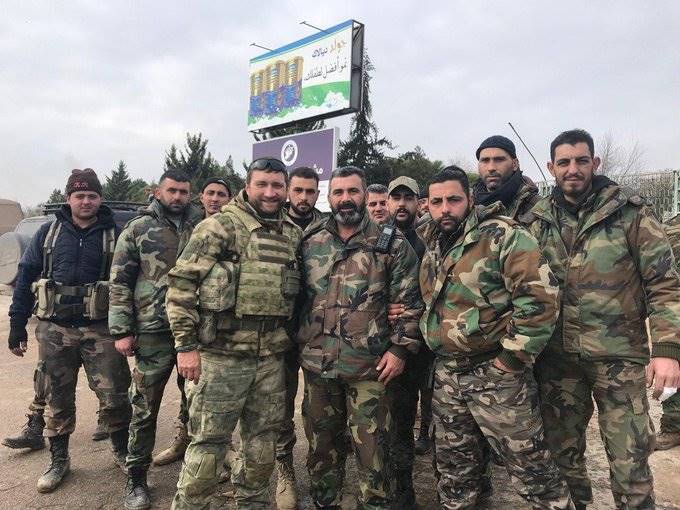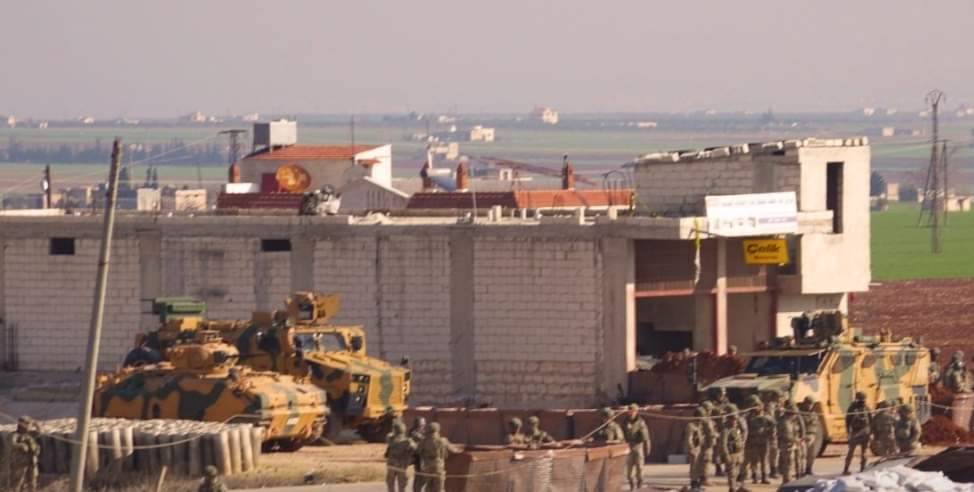COUNTING DOWN TO BROADER ARMED CONFLICT IN IDLIB:
DIRECT CONFRONTATION BETWEEN THE TURKISH MILITARY AND THE SYRIAN ARAB ARMY REMAINS LIKELY
Dr Can Kasapoglu, Director of Security and Defense Studies Program
Emre Kursat Kaya, Research Fellow
What Happened?
The Syrian Arab Armed Forces has launched a large-scale offensive in the Greater Idlib region. The offensive is focusing on key choke points along main lines of communications, such as Maarat al-Numan and Saraqeb. A simultaneous assault in the Western Aleppo countryside is also advancing.
Heavy Syrian Arab Army shelling claimed Turkish soldiers’ lives near Saraqeb. Ankara has retaliated through airstrikes and heavy shelling. Turkey’s Ministry of Defense reported that 76 pro-regime fighters were killed1.
The regime, under the cover provided by the Russian Aerospace Forces contingent in Latakia, has registered important progress.
In the meanwhile, the Turkish Armed Forces have been reinforcing the forward-deployed units and establishing new defensive positions in the area of operations. Ankara seems to be firmly determined to halt the Baath regime’s push for Idlib.
Open-source intelligence assessment
Our review of pro-regime social media accounts and Russian Telegram sources suggest that the principal units pioneering the offensive are the 25th Special Missions Division commanded by one of the Kremlin’s favorite figures in Syria, General Suheil al-Hassan (formerly Tiger Forces) and the 5th Assault Corps, one of the main combat formations of the Syrian Arab Army built by the Russian military advisors after 2015. In other words, the Syrian Arab Army’s escalatory moves are not taking place in the absence of Moscow’s consent.
In the meantime, the 4th Armored Division of Maher al-Assad, Bashar’s thuggish brother, and the Shiite militias are operating in the Western Aleppo. The Turkish-backed Syrian National Army (formerly Free Syrian Army) elements are positioned along dangerously close contact lines with the 4th Armored Division and accompanying paramilitaries in the al-Bab – Aleppo axis.
In Western Aleppo, while there have been exchanges of territory, so far, the overall status quo did not change. On a separate note, Maher al-Assad’s forces deployed OTR-21 Tochka mobile short-range ballistic missiles in this front, marking yet another incident in Syria’s missile warfare record during the civil war.
Soldiers from the 25th Special Missions Division and Russian war correspondent Oleg Blokhin in recently captured Maarat al-Numan.
The battle for Idlib has been chiefly fought along the choke points on the M4 and the M5 highways. The military-geostrategic characteristic of the conflict has led to the emergence of several lines of contact between the Syrian Arab Army and the Turkish Armed Forces’ forward-deployed contingents.
At the time of writing, Turkey has been fielding large numbers of heavy weaponry and combat units around Idlib. Our monitoring of open-source data spotted large concentrations of main battle tanks, armored personnel carriers, and land-based fire-support assets.
A Turkish observation post in Saraqeb
Political-military assessment
The 25th Division and the 5th Corps (formed by Russia in 2016) remain the most notable Russian-backed formations within the Syrian Arab Army’s doctrinal order of battle. These units’ leading roles in the Idlib campaign showcases Moscow’s unwavering stance as to restoring full Baath regime control over the entire Syrian territory.
Ankara perceives a threat from uncontrolled and decisive progress of Assad’s forces in Idlib in the absence of diplomatic bargaining, as such a leap can set a very unfavorable precedent for the Turkish-controlled zone in the north. The present situation in Idlib, in this respect, also challenges the rapprochement between Turkey and the Russian Federation.
Current divergences downplay the prospects of a diplomatic way-out in the Idlib conundrum. A limited conflict between the Turkish Armed Forces and the Syrian Arab Army is likely. In such a case, lack of organic air defenses accompanying ground formations remains a serious handicap for Ankara. On the other hand, the Baath regime has already committed a large number of detachments from its praetorian units to hundreds of kilometers away from the capital Damascus. The regime’s combat-capable manpower cannot match the Turkish 2nd Field Army’s warfighting capacity. Thus, Assad cannot risk a prolonged and spiraling conflict with Turkey and would need Russian intervention at some point.
At present, the more critical question revolves around the limits of Turkish – Russian cooperation and competition. Idlib could potentially manifest more than a local conflict in this respect.






